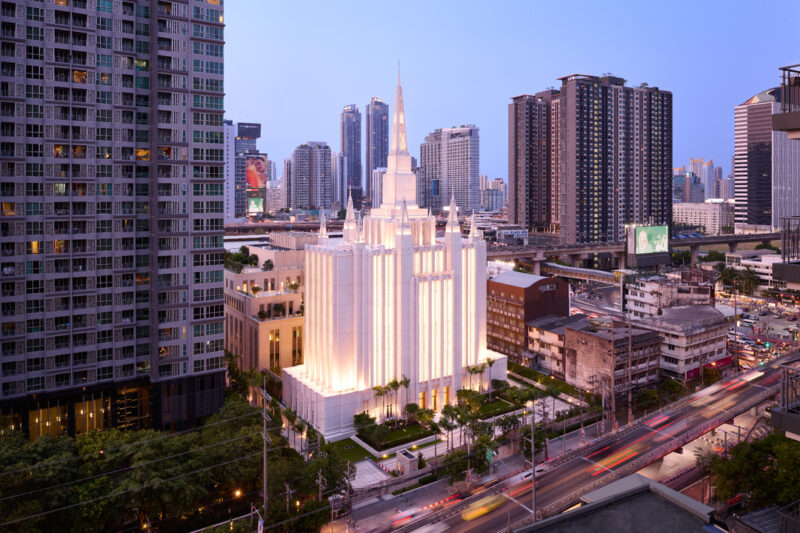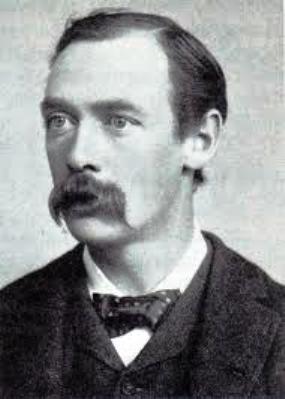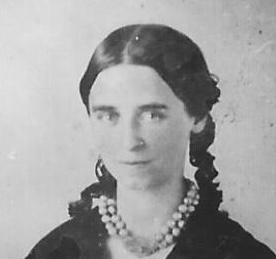
I like this photo of the Bangkok Thailand Temple. I know many people will see in it an island of good among a sea of chaos and evil. I can’t disagree more with that view—most of humanity doesn’t live in the stereotypical suburban pastoral nowhere favored by the world, and where they do live is not chaotic or evil just because it is urban.
Instead, I see in this photo a place where we can turn our thoughts to God from the everyday busyness and concerns of our day. It is not meant to be isolated, as if the rest of our lives don’t exist, but instead influence our surrounding life for the better. If, as philosophers have suggested, we strive in this life for the triumvirate of Truth, Goodness and Beauty, a Temple is a means for achieving all three, while we continue to carve out our lives in the environment we live in.
This week’s sections of the D&C are the dedicatory prayer for the Kirtland Temple and the vision received a week later. Among the most cited in the Doctrine and Covenants, these sections teach a lot about the nature and blessings of the Temple.
The Lord offers me rich blessings through temple covenants.
The blessings of the temple are often misunderstood in today’s transactional world, which has a hard time with blessings that are spiritual in nature instead of physical. Things like health, a good job and money appear to be “better” blessings than righteousness, the opportunity to serve others and communing with Heavenly Parents. But the Temple offers eternal perspective, not employment and inspiration in place of remuneration.

Even when the Kirtland Temple was dedicated, the extension of spiritual blessings was not well understood—things like ordinances for those who have passed on came later, and added a spiritual dimension to life that wasn’t understood in 1836. This poem, by our Scottish Bard, John Lyon. Here he portrays spiritual gifts in transactional terms—but the blessings are clearly spiritual. An active member of the Church in the United Kingdom and author of the first book of LDS poetry published outside of the U.S., Lyon’s experience with temple ordinances and the work for the dead was purely theoretical in 1853, the year he both wrote this poem and immigrated to Utah. He was able to complete his own temple ordinances the next year in the Endowment House.
Blessing for the Dead
by John Lyon
- How happy the Saints who are faithful and true,
- Who have kept their first love, and on earth do renew
- The covenants they’ve made in the regions above,
- And still prove their faith by their labours of love.
- They’ll rejoice evermore in the Kingdom of God,
- And have for reward, an eternal abode!
- Rejoice all ye dead who the Truth have not heard;
- In the spirit you’ll learn all the power of His word.
- And the vast prison-house shall be opened for you,
- When you’ve paid the last mite for your sins justly due.
- In the mansions of peace, for the righteous prepared,
- You’ll live in the joys of eternal reward!
- Be vigilant then, all ye faithful, to earn
- What the dead are so anxiously waiting to learn,
- Your trials, and patience, and sufferings, and loss,
- Shall be gain in the end, if you bear off the cross,
- And those who are saved, shall extol God, the giver,
- And shine like the stars, in His kingdom for ever.
1853
Prayer is communication with Heavenly Father.
Section 109 is itself a prayer—a prayer of dedication. There are many different kinds of prayer for many different purposes. While often we pray for comfort, prayer is not necessarily about comfort—it can be about struggle, like what Enos experienced in the Book of Mormon, or the experience described in the following poem.

Ruby Lamont was the pseudonym of Marie Margarete Miller Johnson, part of the first generation born in Utah. She married William Johnson in 1881, and raised her family in Richfield, Utah. A talented and prolific poet, Margaret’s work appeared in many LDS periodicals through her death in 1939.
A Prayer
by Ruby Lamont
-
-
-
-
- Hear me, O God!
-
-
-
- Dark the waves of doubt roll o’er me,
- Blinding faith, o’erthrowing trust;
- Though I sin, still, Father, hear me,
- Hear my cry who am but dust-
- Thou who still’st the tempest wild,
- Oh! have mercy on thy child;
- Still my fears, control my will,
- Bid my passions “Peace, be still!”
-
-
-
- Hear me, my God!
-
-
-
-
-
-
-
- Dark fears arise!
-
-
-
- Though I wish to do Thy bidding,.
- I yet linger by the way;
- Others are the bright prize winning
- Of the fair Celestial Day,
- Must my soul be darkened e’er-
- Shall I win that sweet prize ne’er?
- Teach, Oh! teach me, God, to pray;
- Guide me safely on Thy way!
-
-
-
- Help me be wise.
-
-
-
-
-
-
-
- Hear, Father, hear!
- Turn not away,
- Hear me this once,
- Hear while I pray!
- Hear, Father, hear!
-
-
-
-
-
-
-
- Give me thine aid
- Through life to be
- True to Thy Kingdom,
- Faithful to Thee.
- Give me thine aid
-
-
-
-
-
-
-
- Let not the darkness
- Of doubt or fear
- E’er overcome me-
- Hear, Father, hear!
- Let not the darkness
-
-
-
-
-
-
-
- Help, Father, help!
- Thou who once gave
- Thine Only Begotten,
- Hear, help and save!
- Help, Father, help!
-
-
-
- Thus simply sang a woman once, who, doubting, still did trust,
- And hope, and pray to our Father, who is merciful and just.
- Was the lone one turned unanswered from the altar of her prayer?
- Judge ye who oft have plead at that altar sweet and fair.
- For though we may be weary of temptations and of strife,
- Though our spirits may be darkened to the things of future life,
- Though our hearts may sadly falter, even when we do our best,
- Ne’er forget that in yon Heaven He will give the righteous rest.
1883
The Lord can manifest Himself to me in His house.
A blessing we can get in the Temple is the manifestation of the Lord to each of us. While I’m sure there are many who will literally see the Lord in the Temple, for the rest of us the Lord is manifested in what we learn about him there, in the revelation of what is True, Good and Beautiful. That is truly a spiritual blessing, to understand what we need to know to become like our Heavenly Parents.

Students of our LDS hymns will recognize the author of the following poem. English poet George Manwaring was the author of several well known hymns in our current hymnal, including “Joseph Smith’s First Prayer” aka “Oh How Lovely Was the Morning.” Although he died in 1889 at the age of 35, Manwaring was the author of more than one hundred poems and hymns. This hymn suggest that the blessings of the Temple include seeing the Savior and rejoicing in his love.
A Temple Hymn
By George Manwaring
- We want to see the temple
- With towers rising high,
- Its spires majestic pointing
- Unto the clear blue sky;
- A house where Saints may gather,
- And richest blessings gain,
- Where Jesus, our Redeemer,
- A dwelling may obtain.
- We want to meet the Savior,
- And see Him face to face,
- When He shall come in glory
- Unto that holy place;
- If we are true and faithful
- We’ll hear our Savior’s voice,
- Receive a Father’s blessing,
- And in His love rejoice.
1877
The Savior directs His work through priesthood keys.
If the Temple helps us find the True, Good and Beautiful, then it provides knowledge essential to salvation. And this Temple knowledge is delivered to us through priesthood keys. So when poet Emily Hill asks “Where Shall We Seek Salvation?” we recognize that both the Temple and the priesthood are crucial participants.

Poet Emily Hill was an English convert, one of many who shaped Mormon poetry and culture in the late 19th century. This poem was published in the Millennial Star in 1855, less than a year before he and her sister Julia emigrated to Utah. The next few years were full of trials, as Emily survived traveling in the Willie handcart company and married, only to have her husband leave on a mission to England and then never return because he abandoned his family and the Church. Emily married a second time, to Joseph Woodmansee, raised eight children and became one of the most highly praised LDS poets of the 19th century.
Where Shall We Seek Salvation?
by Emily Hill
- Where shall we seek salvation? Oh! whither shall we go,
- The principles of righteousness and saving truth to know?
- For full and free salvation, oh whither shall we fly,
- If we leave the ancient Gospel, and its power and truth deny?
- Where shall we seek salvation? oft the question will arise,
- When censur’d by the pious world, professing to be wise;
- When wrathful eyes are eloquent with scorn tongues cannot speak,
- And they caution us with earnest zeal a purer faith to seek.
- Then, rejoicing with full confidence in what as truth we know,
- We solicit for a surer and a better way to go,
- But none, oh none can tell us of so good and firm a track
- As the one reveal’d to Joseph-e’en the Gospel given back;
- Which saveth us in every way, and cleanseth from all sin
- The honest and the pure in heart that are adopted in
- By water and by covenant, the spirit and the blood;
- And through our faithfulness we’ll reign as Kings and Priests to God.
- High heaven’s eternal Priesthood, in rich majesty and might,
- Do hold on earth the keys of power, of knowledge, truth, and light,
- And by their counsels we are led, and through them we have power
- To overcome and to rejoice in every trying hour.
- This, this is sure salvation, that, experienc’devery day,
- Perfects the Saints in righteousness, and leads us in the way
- Of wisdom and felicity, and tends to purify
- And fit us for salvation, e’en celestial, pure, and high.
1855
